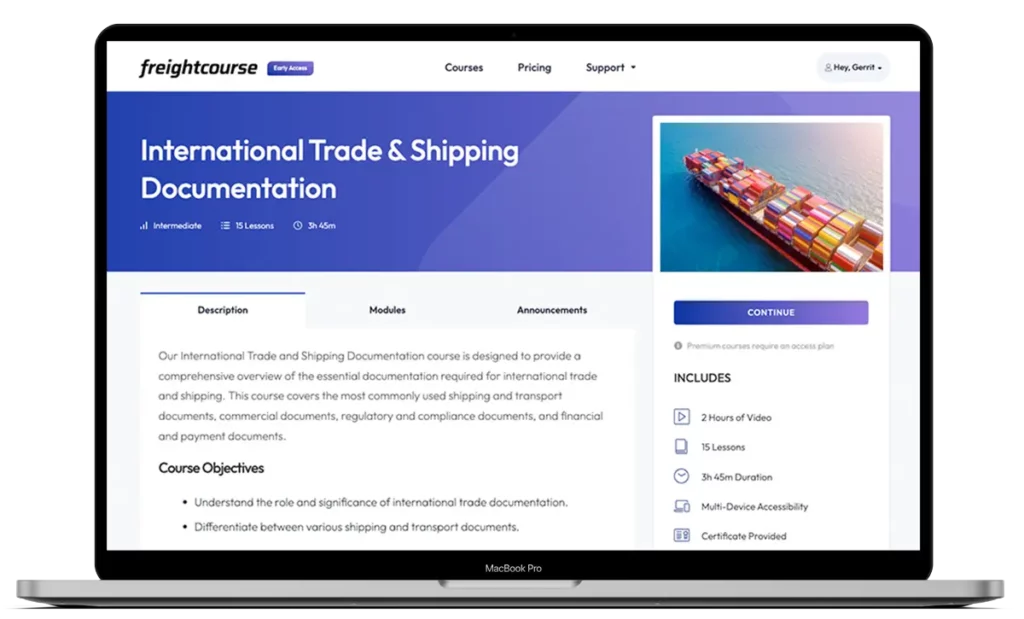As the freight industry faces growing competition in the United States, many companies are looking for ways to improve their inbound and outbound supply chain processes, including warehouse operations.
Warehousing is an integral aspect of any freight process. It involves loading and unloading cargo with the aid of material-handling equipment, such as forklifts and cranes. Many carriers also hire in-house teams (ground personnel) to move cargo in and out of trucks.
Unfortunately, many warehousing service providers may not have sufficient equipment or labor, especially during peak seasons, schedule conflicts, lack of capital, or other reasons. In such situations, lumper service providers are ideal.
Lumper services are loading and unloading services provided by truckers, to shippers, consignees, and brokers. When required the trucker will help to load cargo from the warehouse into the truck or unload the cargo from the truck into the warehouse.
In this article, we’ll explain what lumper services are in detail and share their costs, benefits, and key factors to consider when choosing a service provider.
What Are Lumper Services?
Although the origins of the term “lumper” remain contested, it has been used traditionally to describe a laborer who unloads cargo at a loading dock or from a ship for a lump sum of money.
In that context, lumper services are third-party loading and unloading services that provide convenience to carriers, shippers, and other parties by procuring material handling equipment (MHE) and laborers to support the loading or unloading processes.
This offers shippers and consignees assistance, especially during peak seasons or labor shortages, when warehouse throughput is increased. Lumper services are common in (but not limited to) the following industries:
- Consumer Goods
- Fashion & Retail
- Food & Beverages
- Pharmaceutical
- Manufacturing
Today, many carriers in the US with sufficient resources and a broad service offering provide lumper services and charge shippers or consignees a lumper fee for loading and unloading cargo.
However, it’s important to note that not every carrier (trucking company or owner-operator may offer lumper services).
How Much Do Lumper Services Cost?
Lumper service costs can vary depending on several factors, such as the pick-up and drop-off location, timeline, scope of work, machinery and labor requirements, and more. For example, lumper services may be costlier in remote locations with limited options and little competition.
Overall, you can expect to pay around $100 – $500 for lumpers charges (which typically include a single full truckload (FTL) of loading or unloading). For more information, make sure to read our complete guide on lumper fees.
When Should Lumper Services Be Considered
Lumper services are in high demand among shippers and receivers that are confronted with a lack of resources or want to increase their productivity. Below are some of the circumstances in which lumper services can be procured:
- During Peak Periods – Many shippers often need to increase cargo output from the warehouse to meet market demands. Not having sufficient resources during peak periods could result in large-scale supply chain disruptions. As hiring, additional personnel may not be the best solution unless load surges are frequent, procuring lumper services is usually a more cost-effective way to meet cargo handling requirements.
- When Facing Resource Shortages – In many cases, shippers and consignees may not have sufficient labor to handle cargo due to high turnover, peak workloads, or similar issues. In these cases, lumper services are ideal as the trucking company is able to help load and/or unload cargo.
- Amid Equipment Shortages – Shippers and receivers sometimes have sufficient labor but insufficient equipment, such as forklifts or pallet trucks, due to maintenance, breakdown, or other issues. Some truckers are able to provide pallet trucks and other material handling equipment if they are required.
- For Multi-Site Facilities – Many large companies have multiple warehouses and facilities that require cargo loading and unloading in a single timeframe. Therefore, opting for a third-party service to handle cargo is smarter than hiring more laborers or procuring more machinery. Many facilities don’t require multi-site cargo handling simultaneously. Hence, on average, hiring additional staff for low-volume cargo movement would be a waste of working capital.
- When Having Space Limitations – Another reason to procure lumper services is to accommodate unloading multiple truckloads simultaneously due to limited parking space for trailers in the facility. In other words, some shippers may require faster loading or unloading to minimize the need to hold cargo for long periods.
Benefits of Lumper Services
Lumper services are becoming quite popular in the fast-moving consumer goods (FMCG) and F&B industries. They offer many benefits to all parties involved by enabling high-volume cargo loading and unloading with tight timelines.
Below are some key reasons shippers, carriers, and consignees are happy to pay for lumper services:
1. Improves Productivity
The biggest benefit of hiring a third-party service to handle unloading and loading processes is productivity enhancement. The added resources enable shippers and receivers to limit or prevent any wait time and accelerate the loading and unloading process.
Similarly, truckers can minimize idling and detention, allowing them to haul more cargo. In turn, this also increases their productivity and overall profitability.
2. Lowers Operational & Capital Expenditures
Hiring lumpers to handle cargo in warehouses and loading docks is a great way to reduce warehousing expenditures. With this strategy, shippers or receivers can offset the need to hire their own resources and equipment, saving hundreds of thousands of dollars.
Many large companies with high-volume cargo movements also benefit from hiring multiple third-party lumpers to team up with their in-house teams to keep their headcount, operational expenditure (OpEx), and capital expenditure (CapEx) as low as possible.
3. Streamlines Employee Skill Sets
For many companies, hiring a team of skilled experts like forklift drivers, packers, and sorters, may not be financially viable, especially in small companies with limited resources. By opting for lumper services, they can outsource the required cargo handling processes to trained professionals.
4. Adds Additional Revenue Stream
As mentioned above, opting for lumper services is a great way to reduce headcount expenditures for shippers and receivers. On the other hand, lumper services also act as an additional revenue stream for carriers.
Some larger trucking companies may employ their own laborers while others engage in third-party ones on a contract basis and offer lumper services to their clients as an additional service. This gives a carrier the edge it needs to stand above its competitors.
5. Provides Value-Added Services
Many warehousing service providers don’t have sufficient equipment, skillsets, or resources for value-added services that can be used to provide an all-inclusive solution for all parties involved.
Here are some of the value-added services that a lumper can offer:
- Staging
- Sort & Segregating
- Palletizing
6. Reduces Accessorial Fees
Finally, another important benefit lumper services provide shippers is reduced trucking detention fees and layover fees, which can save them hundreds of dollars every hour. Lumper services provide the necessary labor and equipment to speed up cargo handling processes and minimize or even prevent accessorial fees.
What to Look Out For When Sourcing Lumper Services?
There are many factors you need to take into account for choosing the right lumping service. The most important factors include price, service quality, capacity, and additional services. Let’s explore these in more detail.
Price
Many companies operate on tight budgets and may not have sufficient resources to hire lumper services. Therefore, before choosing a provider, determine how much you’re willing to spend on this additional service versus how much this service can save you.
To get an idea of the cost, you can ask different providers to quote for their services so you can compare them with others. However, opting for the most affordable solution may not be the best strategy.
The last thing you want is a team of inexperienced or underequipped lumpers handling your cargo. Therefore, make sure to learn about their capabilities to ensure you get what you’re looking for.
Service Quality
Next, you must ensure that your service provider meets or exceeds your internal quality standards. To do this, you can ask for referrals on online and offline trucking communities or forums.
You can also gauge their capabilities by checking their reviews and client testimonials on their websites and social media pages. When engaging lumper service providers in preliminary discussions, it can be beneficial to request a trial period for performance evaluation.
Capacity
Like carriers, lumper services also vary in terms of equipment and laborers. Therefore, another important aspect of choosing the right provider involves determining if they have enough capacity to cover your cargo loading and unloading needs.
Additional Services
If you can’t decide between two or more lumper service providers due to similarities in pricing, capacity, quality, or other factors, learn about their additional services aside from loading and unloading.
Many lumpers provide extra services, such as labeling, stock taking, palletizing, packaging, stacking, as well as sorting, and segregating.

Get Free Course Access
If you enjoyed the article, don’t miss out on our free supply chain courses that help you stay ahead in your industry.

Andrew Lin
Co-Founder & Writer
at freightcourse
About the Author
Andrew is a multi-business owner with over 12 years of experience in the fields of logistics, trucking, manufacturing, operations, training, and education.
Being the co-founder of freightcourse has given him the ability to pursue his desire to educate others on manufacturing and supply chain topics.
Follow us